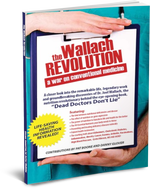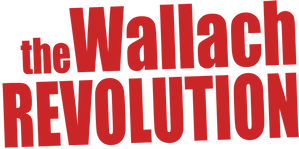In his experience on the farm, at the zoos, in the wilds of Africa, and in examining thousands of cadavers to determine the causes of animal deaths, Wallach had come to a different understanding of nature. Everything ingested, whether food or drug, had effects on the functioning of cells, tissues, organ systems, life itself. The conventional demarcation was one Wallach knew to be a lie, an artificial construct that misleads. At a young age, he understood the genius of animal feed preparation lay in choosing the right kind and quantity of nutrients to maximize the animal’s favorable characteristics, freedom from disease, and longevity. How, he thought, can we be so intelligent as to unlock this secret for animals yet be blind about it when it comes to humans? It had been since his teen years a source of vexation for Wallach that farmers would meticulously ensure that their animals received the right nutrients but when it came to their own sustenance, they consumed foods that met their caloric needs but did not give them ideal amounts of minerals, vitamins, amino acids, and fatty acids on a daily basis.






